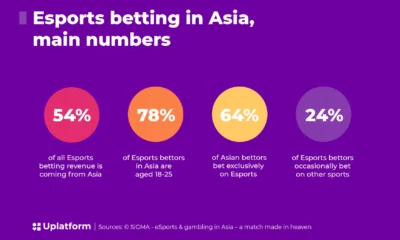In recent years, the term Thotslife has garnered attention across various online platforms, evolving into a subculture with a unique set of behaviors, interests, and attitudes. The rise of social media, particularly platforms like Instagram, TikTok, and OnlyFans, has been instrumental in amplifying this lifestyle. People either embrace it as a liberating form of self-expression or criticize it for promoting superficiality. But what exactly is Thotslife, and how has it impacted contemporary culture? In this article, we’ll explore the history, motivations, and implications of this online phenomenon.
What is Thotslife?
Thotslife is derived from the term “THOT,” an acronym for “That Hoe Over There.” Initially used derogatorily, the word has since been reclaimed by some to celebrate confidence, independence, and the pursuit of personal success. The term “Thotslife” now encapsulates a broader online lifestyle, where individuals, mostly women, flaunt their physical appearance and lifestyle to amass social capital. This often translates to followers, likes, comments, and in many cases, real financial gains through subscriptions, sponsorships, and brand deals.
People involved in Thotslife often present themselves in highly curated and provocative ways, maintaining an image of beauty, wealth, and desirability. This digital persona is highly performative, yet the individuals behind these accounts may or may not live the lifestyles they portray. Many Thotslife participants monetize their looks and content through premium social media accounts, using platforms such as OnlyFans, Patreon, and exclusive Instagram accounts to offer paid subscriptions.
The Role of Social Media in Thotslife
Social media is at the heart of Thotslife culture. Instagram, with its focus on visual content, serves as the primary stage where participants showcase their lives. Carefully crafted photoshoots, high-quality filters, and suggestive content play a significant role in attracting attention. TikTok has added to this with viral challenges and short-form video content that allows users to express their personalities in addition to their looks.
The rise of OnlyFans has been particularly transformative for this subculture. While initially a platform for creators of various kinds, it has now become synonymous with adult content. Many Thotslife participants use OnlyFans as a way to generate significant income, capitalizing on their follower base from Instagram and other platforms. Exclusive content is offered to subscribers, often in the form of more revealing or personal posts than what’s publicly available.
The strategic use of hashtags like #Thotlife, #ThotThursdays, and #ThotGang allows for increased visibility within the community. These hashtags also help content go viral, attracting more likes, shares, and ultimately, financial rewards.
The Appeal of Thotslife: Why It’s So Popular
At the core of Thotslife is the allure of fame and financial independence. Many young women, and even some men, find that presenting themselves in this lifestyle leads to lucrative opportunities. Influencers and content creators who succeed in amassing large followings often land sponsorships, modeling deals, and brand partnerships. These individuals have mastered the art of self-promotion, understanding the power of imagery, engagement, and viral content.
Beyond financial gain, there’s also a psychological appeal. In an age where validation often comes in the form of likes, comments, and shares, Thotslife allows individuals to receive almost immediate feedback on their appearance and lifestyle. This validation can be addicting, driving participants to continue curating their image to attract more attention.
Many in the Thotslife community argue that this lifestyle is a form of empowerment—a way to take control of one’s image, body, and financial destiny. By monetizing their looks and persona, they challenge traditional notions of work and success, finding a way to thrive in the digital economy.
Criticism and Controversy Surrounding Thotslife
Despite its appeal, Thotslife is not without controversy. Critics argue that this lifestyle promotes superficiality and objectification. They claim that participants are feeding into societal pressures that prioritize beauty and sex appeal over intelligence, kindness, or other non-physical traits. Additionally, some believe that Thotslife perpetuates unrealistic standards of beauty, particularly through the use of filters, Photoshop, and cosmetic surgery.
There is also concern about the exploitation of young people, especially women, who may feel compelled to adopt this lifestyle in order to fit in or achieve success. With the rise of platforms like OnlyFans, the line between empowerment and exploitation becomes increasingly blurred. While some participants may feel in control of their content and revenue, others may feel pressured to produce more explicit material to remain competitive.
Another layer of criticism comes from the hyper-consumerism that Thotslife often promotes. The focus on luxury goods, expensive trips, and lavish lifestyles can contribute to a culture of envy and materialism, particularly among younger audiences. For many, this lifestyle is unattainable, leading to feelings of inadequacy and dissatisfaction with their own lives.
The Future of Thotslife
As social media continues to evolve, so too will the dynamics of Thotslife. With new platforms emerging and current ones adapting to user demands, we can expect this subculture to grow even more influential. The monetization of personal brands is likely to become even more prevalent, with more people seeking to capitalize on their social media presence.
However, we may also see a backlash. As criticism around the objectification and consumerism of Thotslife grows, some users may shift towards more authentic or less curated forms of self-expression. Already, there are movements advocating for more transparency and honesty online, challenging the perfectionism that dominates platforms like Instagram.
Ultimately, Thotslife reflects the broader cultural moment we are in—a time when digital personas can be as influential as real-world achievements, and where the line between empowerment and objectification is constantly being negotiated.
Conclusion: The Complex World of Thotslife
Thotslife is a multifaceted phenomenon that taps into desires for attention, financial success, and empowerment. For some, it’s a liberating way to take control of their image and career, while for others, it represents the problematic pressures of modern social media culture. The ongoing debate around this subculture mirrors larger discussions about beauty, objectification, and the digital economy.
While it is difficult to predict where this movement will go, there’s no denying its influence in shaping contemporary culture. Whether you view Thotslife as empowering or exploitative, it reflects the complexities of navigating identity, success, and self-worth in a digital age.


 Blog8 months ago
Blog8 months ago
 Sports9 months ago
Sports9 months ago
 Games9 months ago
Games9 months ago
 Tech9 months ago
Tech9 months ago
 App9 months ago
App9 months ago
 Tech7 months ago
Tech7 months ago
 Entertainment8 months ago
Entertainment8 months ago
 Sports9 months ago
Sports9 months ago


